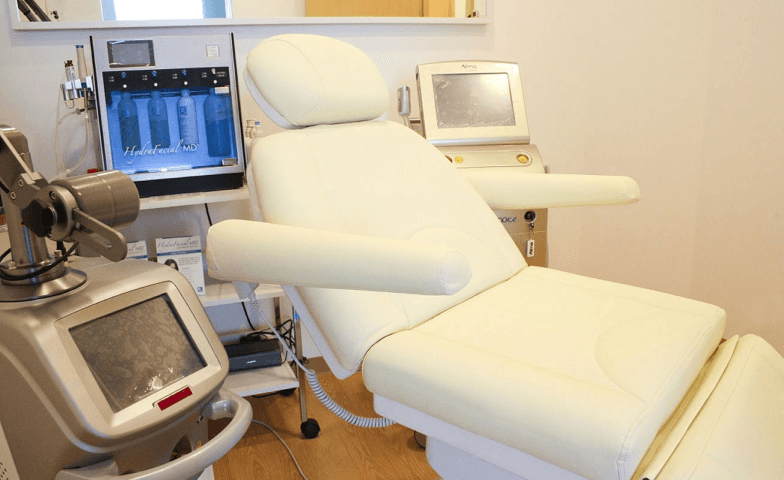Introduction
Skin cancer is a growing concern in Singapore, with reported cases increasing every year. According to the National Cancer Centre Singapore, skin cancer is the 6th most common cancer among men and the 7th most common among women in Singapore.
While the majority of skin cancers aren’t life-threatening, it is still crucial to understand the different types of skin cancer and the importance of early detection. In this article, we will discuss the various types of skin cancer and the significance of recognising the symptoms early.
Understanding Skin Cancer Types
Skin cancer can be broadly categorized into three main types, namely basal cell carcinoma, squamous cell carcinoma, and melanoma. While basal and squamous cell carcinomas are the most common types, melanoma is the most dangerous and aggressive form of skin cancer.
Non-Melanoma Skin Cancer
Non-melanoma skin cancer (NMSC) is the most common type of skin cancer, accounting for about 80% of all cases. NMSC comprises two main types of skin cancer, namely basal cell carcinoma (BCC) and squamous cell carcinoma (SCC).
Basal Cell Carcinoma
Basal cell carcinoma is the most common type of NMSC, accounting for around 80% of all NMSC cases. BCC usually appears as a small, shiny bump or a red, scaly patch that may bleed easily or develop a crusty appearance. BCC’s most significant cause is exposure to UV radiation from the sun, tanning beds, or other sources.
Treatment options for BCC include surgical removal, cryotherapy, and radiation therapy. Surgical removal is the most common treatment method, and the procedure involves removing the cancerous tissue and some surrounding healthy tissue.
Squamous Cell Carcinoma
Squamous cell carcinoma is the second most common type of NMSC, accounting for around 16% of all NMSC cases. SCC usually appears as a thick, scaly, red patch or a wart-like growth that may have a raised border and central ulceration. The primary cause of SCC is also exposure to UV radiation.
Treatment options for SCC include surgical removal, radiation therapy, and chemotherapy. Like BCC, surgical removal is the most common treatment method for SCC. Radiation therapy and chemotherapy are usually reserved for advanced-stage SCC cases or cases where surgery is not a viable option.
Melanoma
Melanoma is a type of skin cancer that develops in the cells that produce pigment in the skin, called melanocytes. It is the most dangerous and aggressive type of skin cancer, accounting for only around 4% of all skin cancer cases but causing the majority of skin cancer-related deaths.
Causes Of Melanoma
The primary cause of melanoma is exposure to UV radiation from the sun, tanning beds, or other sources. The symptoms of melanoma can include a mole that is asymmetrical, has an irregular border, and is not uniform in colour. Other signs include a new mole, a change in the appearance of an existing mole, or any unusual growth or patch on the skin.
Four Stages Of Melanoma
Melanoma is classified into four stages, ranging from stage I (early-stage) to stage IV (advanced-stage). The stage of melanoma is determined by the thickness of the tumor, the depth of penetration, and whether the cancer has spread to other parts of the body.
Treatment options for Melanoma
Treatment options for melanoma depend on the stage of the cancer and may include surgical removal, radiation therapy, chemotherapy, or targeted therapy. Early-stage melanomas can usually be treated with surgical removal, while more advanced-stage melanomas may require more aggressive treatments.
Risk Factors for Skin Cancer
There are several risk factors that increase a person’s chances of developing skin cancer. Understanding them can help people take appropriate precautions to reduce their risk of developing skin cancer.
Sun Exposure:
Exposure to UV radiation from the sun is the most significant risk factor for developing skin cancer. People who spend long periods in the sun, have a history of sunburns or use tanning beds are at higher risk.
Fair Skin:
People with fair skin are at higher risk for developing skin cancer than those with darker skin tones. This is because fair skin has less melanin, which provides natural protection from UV radiation.
Family History:
Having a family history of skin cancer increases a person’s risk of developing skin cancer as certain genetic factors can increase a person’s susceptibility to skin cancer.
Age:
As people age, their skin becomes less resilient and less able to repair itself. This makes older adults more susceptible to skin cancer.
Immune Suppression:
People with weakened immune systems, such as those who have had organ transplants or are undergoing chemotherapy, are at higher risk for developing skin cancer.
Are Your Symptoms Affecting Your Quality Of Life?
Preventing Skin Cancer
Here are some ways you can reduce your risk of developing skin cancer.
Sun Protection:
Protecting the skin from the sun’s harmful UV rays is the most crucial step in preventing skin cancer. This includes wearing protective clothing, using sunscreen, and seeking shade when outdoors.
Avoid Tanning Beds:
Tanning beds emit harmful UV radiation that can increase the risk of skin cancer. Avoid using tanning beds or any other artificial tanning devices.
Regular Skin Checks:
Regular skin checks can help detect any suspicious changes in the skin early on. Perform self-examinations at home and see a dermatologist who specializes in skin cancer regularly for a full-body skin check.
Maintain a Healthy Lifestyle:
Eating a healthy diet, staying hydrated, and getting regular exercise can help maintain good overall health and reduce the risk of developing skin cancer.
Conclusion
Skin cancer is dangerous and affects millions of people worldwide. Early detection and prompt treatment can save lives. Regular skin checks and visits to a dermatologist can detect any suspicious changes. Protect your skin from the sun, avoid tanning beds, and maintain a healthy lifestyle. Take appropriate precautions to reduce your risk of skin cancer and stay safe.







